#antique whale oil lamp
Text
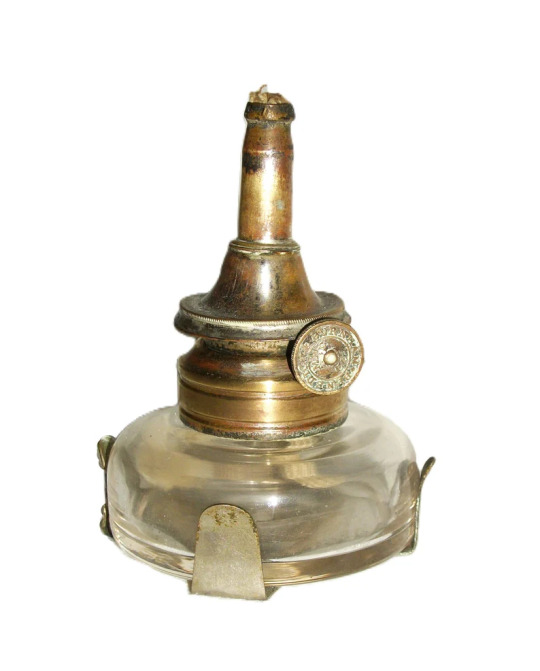
Antique Miniature Jeweler Alcohol Whale Oil Lamp by Benedict & Burnham Predecessor to Modern Day Bunsen Burner Victorian era
#antique jewelers lamp#antique whale oil lamp#BEnedict & Burnham lamp#Victorian bunsen burner#Victorian lab lamp#Antique miniature alcohol lamp#antique miniature oil lamp#antique miniature whale oil lamp#antique miniature watchmakers lamp#antique watchmakers lamp#antique cigar lighter#Victorian cigar lighter#1840s oil lamp#1840s lamp#1850s lamp#1840s lighting#antiques
0 notes
Text
Joanies Café
Joanies Café
Burned down the other day,
Only it’s a bike shop now,
An antique store before that,
But before then it was Joanies Café.
Where in the twilight of my youth I used to play,
On the first of my Friday nights away.
Where at a dimly lit cobweb-laden counter
I used to eat and drink for free,
No wonder the place went out of business,
Never saw anyone that came pay.
Even the cats got free room and board,
Joanie had a love for any stray,
And if it weren’t for their paw prints in the dust,
You would get lost in that labyrinth
Of antique oddities covered in must and rust,
And mannequins with their clothes half stitched,
And old portraits with their eyes bewitched.
In the attic that was said to be haunted we’d meet,
Lit by ethereal rays of moonlight through cracks,
And by the flickering of an old whale oil lamp,
Matt would sing,
I’d play the guitar,
Karen would be on the cello,
Evelyn would write poems,
While Aiden just read anything,
And everyone had a thing they’d do,
And the ghosts and shadows were our audience.
Joanies Café burned down a long time ago,
When all the strays found new homes,
Leaving behind tracks you could see from the moon.
Then the spiders’ homes were all swept up,
And the paw prints got all dusted away,
And then this bike shop on South Street,
Burned down the other day.
https://holeinthehedgerow.com/2024/03/31/joanies-cafe/
#poetry#creative writing#writing#art#spilled poetry#poems on tumblr#spilled ink#writers on tumblr#spilled thoughts#writers and poets#poem#poetrycommunity#poets on tumblr#original poem#my writing#writerscommunity#writeblr#short story#reading
31 notes
·
View notes
Text
Illuminating History: A Guide to Antique Kerosene Lamps
In the world of ancient artifacts, the antique kerosene lamps are shining witnesses to an earlier period. These stylish and valuable objects not only illuminated homes before the invention of electric lighting but also provided a fascinating story of craftsmanship, innovation and the evolution of society. Exploring the history of old kerosene lamps is similar to taking an epic journey through time to unravel the tales of genius and design that have shaped our understanding of light. In this guide, we'll delve into the fascinating background of these charming antiques' various styles and the most notable makers.
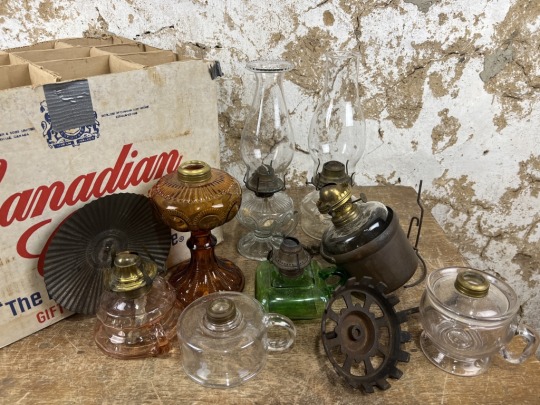
The Origin of the Kerosene Lamp
The history of kerosene lamps started in the early 19th century when the need for reliable and efficient indoor lighting sources increased during technological advancement. The advent of kerosene lamps, a refined petroleum version, offered the solution. Abraham Gesner, a Canadian geologist, is believed to be responsible for the invention, commercialization, and use of kerosene during the 1840s. This fuel was then used for lighting lamps, replacing unsafe and less efficient lighting sources such as lamp candles and whale oil.
Fashions, Styles and Design:
Antique kerosene lamp designs come in various styles, each expressing the style preferences of the time. For example, in the Victorian period, we witnessed the rise of intricate and elaborate designs, using materials like porcelain, brass, and glass to make complicated bases and shades. The Art Nouveau movement, on the contrary, preferred natural and flowing designs, which led to lamps embellished with floral patterns and flowing lines.
A popular and well-known design is The "gone with the wind" lamp, distinguished by a glass globe surrounding the flame. It is usually hand-painted with designs or scenes. Other well-known styles comprise lamps like the Aladdin lamp, famous for its unique mantle style, which increased brightness, and the student lamp, a standard fixture in 19th-century study rooms that featured a glass shade that projected light onto the desk.
Collectors, Manufacturers, and Brands
Many companies left their indelible impression on the world of antique kerosene lamps. Some include Bradley and Hubbard, Tiffany Studios, and the Miller Lamp Company, which produced lights sought-after by collectors. Tiffany lamps, mainly, are renowned for their stunning stained glass shades that display an edgy blend of design and function.
Aladdin lamps, made by the Mantle Lamp Company of America, revolutionized lighting using kerosene by introducing their mantle-inspired design. They offer a more bright and more efficient substitute for traditional lamp wicks. Nowadays, old-fashioned Aladdin lamps are sought-after possessions by collectors who value their historical significance and superior artistry.
Maintenance and Restoration:
The ownership of an antique kerosene lamp is a responsibility that requires maintaining it in a safe and sanitary manner. Because of their age and the condition of these antiques, they are often found with lamps that need cleaning, rewiring or even replacement components. Restorers usually specialize in restoring these items to their original splendour by ensuring that the historical authenticity and functionality of the lamp are maintained.
Valuation and Collecting:
The world of antique kerosene lamp collection is a lively community in which collectors share their knowledge, make knowledge, and appreciate the aesthetics of these historic artifacts. The worth of a lamp could differ significantly depending on factors like quality, condition and historical importance. Although some lights provide a low-cost entry point for new collectors, expensive and well-preserved items from renowned brands can fetch hefty prices at auctions and the antique market.
The Legacy is to be preserved:
As we traverse the technologically advanced world in the 21st century, antique kerosene lamp fixtures serve as tangible memories of a more straightforward but innovative period. Conserving these treasures isn't only a matter of nostalgia but a testimony to the ingenuity of humans and the constant development of our understanding of light.
Bidsquare makes it easy to participate in online live auctions. All you need to do is create an account and register for the auction you are interested in. Once registered, you can start bidding on the items you want. If you are interested in bidding, you can search for live auctions online near me .
Visit Bidsquare's Auction Near Me page to discover upcoming auctions near you. Bidsquare facilitates a global audience, allowing art lovers worldwide to participate in the excitement of the auctions hosted at this venerable institution.
If you are interested in auctions, you can explore the auction house near me to discover even more exceptional auction venues.
0 notes
Photo

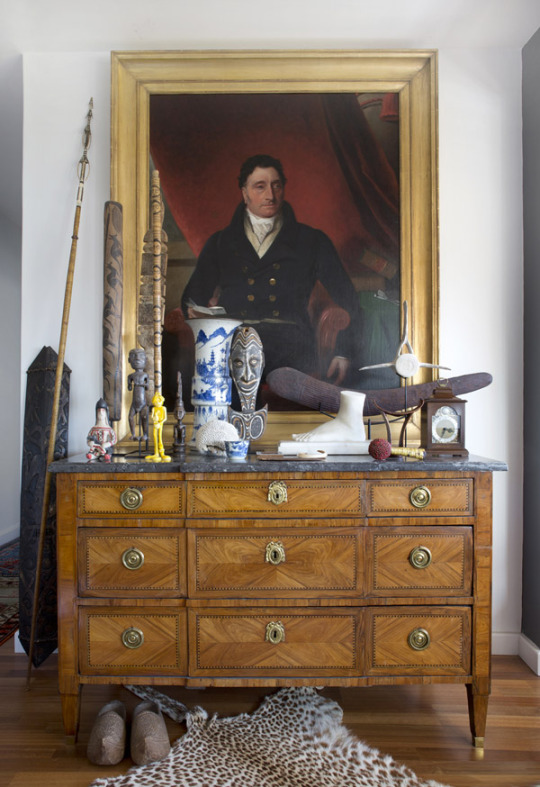
Matthew’s apt. in a 70s building in Fremantle, Washington, is filled to the brim with antiques, collectables and incredible artworks.
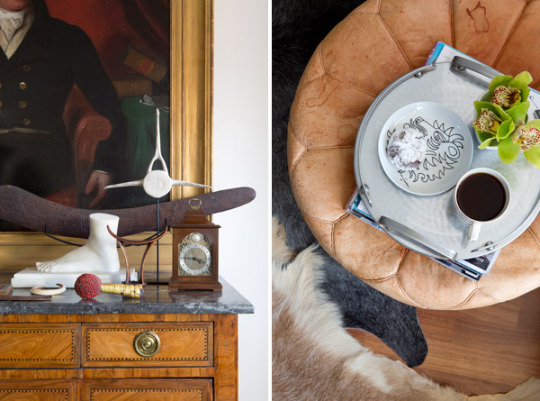
Lounge details include a leather ottoman bought in Tangier, and a1950's porcelain dish from ebay. The dresser is a Louis XVIth period kingwood commode and on top, a whale vertebrae, a boomerang, an African headrest, an Italian 19th cen. marble foot and Matthew's Grandfather's clock.

A 19th century mahogany chair and Matthew's silver tap shoes.

Tulip table, a blue 40's chair found on the side of the street in NYC at 3:00 in the morning, ('there were two but I couldn't carry both!' says Matthew!), a Dinosaur Design glass vase, 60's Hollywood Regency lamp from a vendor on the side of E Houston St in Manhattan, and two of four country Chippendale chairs c1760.

IKEA kitchen cabinets with an image of Matthew's Grandmother & a friend on the backsplash.

Library - a Geo. IVth mahogany desk bought by Matthew when he was 16! Red flocked Mao found in the Wolfsonian museum gift shop in Miami, 18th century bookcase - inherited.

Left - black and white photo of Matthew's father, Matthew's collection of hats (on an old piano leg a saved from a fire wood pile), and his mothers 19th century poetry collection. Right - Matthew's extensive library.

Bedroom - throw from Tangier, colonial Washington oil painting, and feather print pillow cases.

Super stylish non-white renovated bathroom.
https://thedesignfiles.net/
45 notes
·
View notes
Conversation
Tag Yourself: Nancy Drew Game Aesthetics Edition
SCK: opening a new book for the first time, the nostalgia of VHS tapes, coca cola in a glass, remembering your locker combo, letterman jackets, watching true crime documentaries, empty high school hallways, 1950s diners, cramming before an exam
STFD: boxes of chocolates, tape recorders, the click-clack of typewriter keys, catching a taxi, shadows on the wall, stained coffee cups, sitting down to rewatch a tv show, perfume bottles, 1990s fashions
MHM: the sight of dust mixing with light, sightreading old sheet music, crystal chandeliers, old floral teacups, crystal balls, old rotary phones, grand staircases, intricate wooden floors, never-ending house projects
TRT: the glitter of diamonds, worn chessboards, snow-covered gardens, ink-covered hands, butterfly collections, cold tile floors, dull suits of armor, dusty history tomes, footsteps muffled by carpets
FIN: plush red velvet, the scent of popcorn, drawing art deco designs in the margins, worn carpets, old playing cards, the feeling there is still magic everywhere, meeting a childhood idol, movie posters on the wall, catching up with a childhood friend
SSH: jade carvings, steep stone steps, chocolate bars, being the only person in a museum gallery, clean lab coats, amazing sights through a microscope, visiting the hospital, remembering facts you've only heard once, checking the mail for your package
DOG: log cabins, the flapping of bird wings, the distant howling of dogs, the odd sensation when you can see the moon during the day, the scent of pine trees, old glass bottles, strolls along the lake shore, admiring 1920s fashion, long walks in the woods
CAR: antique roller coasters, old postcards, the golden light at dusk, loud band organ music, sounds of a carnival at night, ice cream sundaes for dessert, the delight of riding the carousel for the first time, paint-stained clothes, winning a prize from a carnival game
DDI: a steaming mug of tea on a foggy day, sea caves, light from a lighthouse piercing the fog, messages in bottles, approaching deep water, the sound of seagulls, vintage blue bicycles, spotting a whale on the horizon, crumb-topped blueberry muffins
SHA: worn plaid shirts, sunsets on the horizon, the clip-clopping of hooves, antique blanket chests, forbidden romance, mason jars of flowers, brown and blue eggs, playing piano by ear, faded rugs
CUR: leather-bound books, small potted succulents, curving staircases, old portraits, family secrets, four-poster beds, hearing strange sounds at night, food cravings, spending all day on your laptop
CLK: the ticking of an old clock, pearl and cameo jewelry, the scent of a pie baking, the whir of a sewing machine, reading in a window seat, flouncy dresses, bridges over creeks, driving around a small town, reading Shakespeare for your own enjoyment
TRN: ballet slippers, snow mixed with smoke, faded pastel embroidery, the far-off sound of train whistles, old parchment and wax seals, unwrapping a piece of salt water taffy, quirky local museums, organizing your collections and belongings, light shining through tiffany lamps
DAN: light streaming through stained glass windows, bold red lipstick, freshly baked cookies, tales from your grandparents' youth, long-lost love, twirling in a tulle skirt, the overwhelming desire to visit paris, planning out your outfit for the next day, park benches
CRE: wind in the palm trees, footprints in the sand, rustling in the jungle, small seashells, rope bridges, fruity shave ice, waves tickling your toes, the tangy taste of pineapple, watching surfers from the beach
ICE: frozen lakes, sitting by a crackling fire, snow-covered piles of logs, worn leather ice skates, paw prints, staying in bed after you've woken up, seeing your breath in the cold air, unexpected snowball fights, leather-bound journals
CRY: shadows emphasized by candlelight, dirt-caked fingernails, exploring a cemetery at night, wrought iron fences, the smell after it rains, shelves lined with tchotchkes, going back for second helpings at dinner, moonlight streaming through the window, a grandfather clock at the end of the hall
VEN: gelato cones, orange and brown buildings, soft italian songs, gold lockets, buying flowers for yourself, cobblestone courtyards, leaning over the balcony rail, the overwhelming desire to reinvent yourself, dancing like no one is watching
HAU: ocean waves hitting cliffs, hanging herb bundles, old stone fortresses, white lace and promises, wilting flower bouquets, whistling to keep yourself company, distant celtic music, simple diamond rings, sitting in a peaceful garden
RAN: old gold coins, wading in the cold ocean, a slow-moving hourglass, seeing where the sky meets the sea, old pirate legends, sand between your toes, looking down through clear water, buying yourself new clothes for vacation, eating fruit salad for breakfast
WAC: exploring a college campus, old trophies, distant cello music, milk and cookies, cardigan sweaters, texting your friends, bare tree branches, anthologies of stories, school supply shopping
TOT: wind rustling through wheat fields, creaking wooden staircases, white curtains on the window, golden hay bales, old fences lining the road, watching a storm from the porch, buying a new camera, hanging out in your favorite professor's office, sitting on a tire swing
SAW: the faint scent of cherry blossoms, origami cranes, taking a bath, hearing a new language for the first time, shards of glass, seeing your reflection in the water, buying a new stuffed animal, trying a new food on vacation, listening to your grandmother's stories
CAP: rereading favorite fairy tales, blood-red garnets, red hair in braids, mist in the forest, local legends, playing board games on rainy days, remembering your make-believe games of childhood, puffy-sleeved blouses, watching glassblowers make magic
ASH: blue roadsters, rapidly melting ice cream cones, white picket fences, pastel shop awnings, hand-lettered signs in front of shops, the act of simply being with your friends, revisiting your childhood bedroom, spending all day in an antique shop, visiting your friend's house for the first time
TMB: wind-blown sand, straw sun hats, the warmth of the afternoon, chipped statues, well-used research books, having an egypt phase as a kid, planning your next adventure, drinking cold water on a hot day, pushing your hair out of your face
DED: pencil-covered hands, well-oiled gears, the crackling of electricity, eating your favorite flavor of gummy bears, group projects, keeping to yourself at work, unironically wearing ugly sweaters, publishing your research, organizing your messy desk
GTH: peeling paint on a once-grand house, angel statues, sheet-covered furniture, porch swings, lit matches, lace masquerade masks, grand ball gowns, drinking a hot cup of tea and lemon, looking for treasures in the basement
SPY: old leather suitcases, distant memories, the lingering touch of your true love, piano keys, adrenaline rushes, popped trench coat collars, hugging your mom after not seeing her for ages, looking out the window on a train ride, hearing movie soundtracks in your head
MED: the view from the top of a mountain, the rushing sound of waterfalls, freshly dyed hair, shooting stars, wandering off the trail, vintage comic books, philosophical thoughts, binge-watching reality tv, feeling the sense of deja vu
LIE: hands coated with clay and paint, laurel wreaths, pomegranate juice, books of Greek myths, gold sandals, memorizing a monologue, flowing white gowns, spending all day in a museum gallery, exploring ancient ruins
SEA: the twinkling sound of old music boxes, a night shining with stars, cozy knit sweaters, curling up with your dog, model ships, old barrels, learning your town's history, watching gently falling snow, the beauty of the aurora borealis
MID: the dark colors of herbs, edison bulbs, copper kettles, slowly changing leaves, road trips with friends, carving a jack-o'-lantern, exploring cemeteries at night, small shops surrounding a courtyard, thinking you saw a ghost out of the corner of your eye
237 notes
·
View notes
Text
Sometimes my life is like list
Amy Jeanchaiyaphum May 10 2003
Sometimes my life is like smooth white sand.
Sometimes my life is like a stone smoothed by time and water.
Sometimes my life is like a slow leaky faucet.
Sometimes my life is like a rabbit hiding from a predator.
Sometimes my life is like a comfortable shoe.
Sometimes my life is like and abstraction of another life.
Sometimes my life is like an unwritten film.
Sometimes my life isn't like any other life.
Sometimes my life is like raku pottery glistening colors smelling of oil and smoke.
Sometimes my life is like the aerodynamic iridescence of butterfly wings.
Sometimes my life is like a cocoon.
Sometimes my life is like a Horney baboon.
Sometimes my life is like a roller coaster with no end.
Sometimes my life is like a holiday breakfast grapefruit with sugar and a maraschino cherry on top served cold in a hand made clay bowl.
Sometimes my life is like finding a first Grey hair.
Sometimes my life is like a deep cerulean sea.
Sometimes my life is like thinking you can breathe underwater.
Sometimes my life is like a coconut palm tree.
Sometimes my life is like congee in the morning in a busy alley in Thailand.
Sometimes my life is like a collection of invisible photographs only I can see.
Sometimes my life is like the storytelling cracks in ancient timber.
Sometimes my life is like toads moaning in the rain.
Sometimes my life is like waking up from a nightmare of weeping lepers and a dying mother to the sound of moaning toads.
Sometimes my life is like putting my mother in an oven like a giant chocolate chip cookie in a silky dress.
Sometimes my life is like a pink and blue baby blanket with worn satin edges.
Sometimes my life is like sucking a thumb forever.
Sometimes my life is like an itch wool hat.
Sometimes my life is like an itchy wool sweater made with " LOVE".
Sometimes my life is like my putting on my dad's smelly white motorcycle helmet.
Sometimes my life is like a car driving on water.
Sometimes my life is like an elephant ice-skating.
Sometimes my life is like poodle fur.
Sometimes my life is like a herd of buffalo in South Dakota.
Sometimes my life is like penguins painting in the sun
Sometimes my life is like Floating in space.
Sometimes my life is like a noisy drag race.
Sometimes my life is like Evil Knievel.
Sometimes my Life is like a bonfire in a stone pit.
Sometimes my life is like kitty cat kisses.
Sometimes my life is like the silky seed inside a milkweed pod.
Sometimes my life is like finding a giant agate in a huge dirt pit.
Sometimes I never look at the sky.
Sometimes my life is like seeing the earth from the sky.
Sometimes m Life is like riding in the trunk of a car.
Sometimes my life is like not being picked at all in a roller skating snowball, an own birthday party.
Sometimes my life is like hiding in the curtains and talking about peace in a dodgeball. Game.
Sometimes my life is like being the last one standing in a dodgeball game.
Sometimes my life is like being the last one chosen to be on a team, but not really feeling like taking any part in the team anyway.
Sometimes my life is like a Jackson Pollack painting.
Sometimes my life is like a centerfold ripped in half.
Sometimes my life is like music played by an inexperienced musician.
Sometimes my life is like Perfect music heard in a dream.
Sometimes my life is like an unplayed piano
Sometimes my life is like my mothers Goya guitar.
Sometimes my life is like a cobblestone road.
Sometimes my life is like driving across the Lift Bridge while it's going up.
Sometimes my life is like a circus with too many clowns.
Sometimes my life is like a circus with no clowns.
Sometimes my life is like having a circus in the living room.
Sometimes my life is like a pregnant painted pony.
Sometimes my life is like a prairie sky.
Sometimes m life is like a chandelier growing living grapes flashing with crystal rainbows and light.
Sometimes my life is like an oil lamp.
Sometimes my life is like an unread book.
Sometimes my life is like an owner's manual for a useless appliance.
Sometimes my life is like tripping over nothing.
Sometimes m life is like wearing my grandpa's thick blurry glasses just for fun.
Sometimes my life is like… By A Jeanchaiyaphum Page 3
Sometimes my life is like a hotel.
Sometimes my life is like a ceremony.
Sometimes my life is like a celebration where everyone is included.
Sometimes my life is like a lonely celebration.
Sometimes my life is like a silent moment before a performance.
Sometimes my life is like giving the performance of a like time inspiring everybody and not remembering a thing.
Sometimes my life is like being thirsty on a train between two countries, having a pocket full of money but it isn't the correct currency.
Sometimes m life is like Spray painting on the Berlin wall hoping to leave a mark forever, 6 months before the wall is torn down forever.
Sometimes my life is like a lover waiting.
Sometimes my life is like the end of thirst.
Sometimes my life is like dry blue cheese on dry toast when dehydrated.
Sometimes my life is like a mussel-free from its shell laughing like a maniac and waving goodbye before it jumps down the hole in the train toilet and runs away down the track s of Chur Switzerland. Hoping to climb the Matterhorn and ski in the Olympics.
Sometimes my life is like finding a severed black braid of a supermodel under a bathroom sink in the home of the man who loved her.
Sometimes my life is like watching a party from under the antique table everyone else is eating at it.
Sometimes my life is like a tablecloth made and dyed in India covered in candle wax wine and curry.
Sometimes my life is like hiding in round rotating clothes rack filled with new clothing at a department store.
Sometimes my life is like turning the page.
Sometimes my life is like coming of age.
Sometimes my life is like sitting next to Jesus in a church pew, having a conversation about love and philosophy, while the rest of the congregation is waiting for you to get saved.
Sometimes my life is like a new creation.
Sometimes my life is like being smoothed by muses.
Sometimes my life is like list By A. Jeanchaiyaphum Page 4
Sometimes my life is like a chained up muse.
Sometimes my life is like Kirchner’s lost hand.
Sometimes my life is like sunburn.
Sometimes my life a vegetarian forced to kill and eat meat.
Sometimes my life is like a vegetarian at a veggie buffet.
Sometimes my life is like sitting on a public bus filled with divine beings.
Sometimes my life is like sliding barefoot on new wet concrete.
Sometimes my life is like the smell of fresh timber in new construction.
Sometimes my life is like a national monument.
Sometimes my life is like the statue of liberty greeting all the new kids.
Sometimes my life is like a national park.
Sometimes my life is like having a surgeon cut your bangs.
Sometimes my life is like a museum.
Sometimes my life is like grading papers with my dad.
Sometimes my life is like having my mom do my homework.
Sometimes my life is like eating stew with long-absent family at grandma's house.
Sometimes my life is like a van with wall to wall carpet.
Sometimes my life is like being a kid with the keys to the candy store.
Sometimes my life is like driving a golf cart with a dying battery while being chased by nasty geese
Sometimes my life is like swimming in the bathtub.
Sometimes my life is like learning to skate on the bumpy pond.
Sometimes my life is like A whale in a china shop.
Sometimes my life is like a recipe
Sometimes m life is like a Rorschach test.
Sometimes my life is like a woolly caterpillar.
Sometimes my life is like fleeing from Pharos.
Sometimes my life is like everybody calling me a witch and wishing they were correct.
Sometimes my life is like release time on the playground
Sometimes my life is like the sound of a giant gong.
Sometimes my life is like an exhibition.
Sometimes my life is like an island in peaceful water.
Sometimes my life is like dragonflies embracing and gliding over the water.
Sometimes my life is like floating on my back in the perfectly warm sea looking up at the perfect sky floating above me.
Sometimes my Fe is like stalking a family of familiar strangers
Sometimes my life is like loving someone deeply and never letting them know.
Sometimes my life is like …
Sometimes my life is like a fiddler on the roof.
Sometimes my life is like a pancake on the roof.
Sometimes my life is like a portfolio lost in the middle of a freeway.
Sometimes my life is like a magician's kit.
Sometimes my life is like playing with a real doctor's bag.
Sometimes my life is like a slide under a microscope.
Sometimes my life is like an enormous healthy tree.
Sometimes my life is like standing on the edge of the Grand Canyon talking to a raven feeling overwhelmed at 30.
Sometimes my life is like detention just for fun.
Sometimes my life is like taking the blame for stealing the book money so the whole class could go home,
Sometimes my life is like living in a magical kingdom.
Sometimes my life is like a glass of tab with a slice of lemon in a glass filled with Ice.
Sometimes my life is like examining how ice forms in the ice cube tray.
Sometimes my life is like watching paint dry.
Sometimes my life is like a house claustrophobic with cigarette smoke.
Sometimes my life is like the smell of red wine and cigars.
Sometimes my life is like playing dress up with friends.
Sometimes m life is like a blessing.
Sometimes my life is like the life of a sheepdog trapped in a human body.
Sometimes my life is like an upside down yoga pose.
Sometimes my life is like an undiscovered treasure.
Sometimes my life is like dipping hands in wax while my nose is dripping.
Sometimes my life is like making gods eyes out of yarn.
Sometimes my life is like building haunted houses with my brother.
Sometimes my life is like quitting a play because the role wasn't big enough.
Sometimes my life is like selling painted rocks and lemonade.
Sometimes my life is like playing forever.
Sometimes my life is like flying to the moon in a lazy boy chair.
Sometimes my life is like singing to deer in the Forrest.
Sometimes my life is like mining for diamonds.
Sometimes my life is like leftover pieces made into a quilt.
Sometimes my life is like pulling the stuffing out of upholstery through a little hole.
Sometimes m life is like playing shipwreck in a library.
Sometimes my life is like coaxing snails out of their shells.
Sometimes my life is like, page 6
Sometimes my life is like an embracing secret admiration.
Sometimes my life is like gearing exactly what I want.
Sometimes my life is like an invention.
Sometimes my life is like a sweat lodge sometimes my life is like a close encounter. Sometimes my life is like a POW wow.
Sometimes my life is like the smell of broiled steak.
Sometimes my life is like a well-furnished trailer.
Sometimes my life is like a hand made bunk bed painted cheese whiz yellow?
Sometimes my life is like making friend with my turds before I have to flush them.
Sometimes my life is like talking to inanimate objects.
Sometimes my life is like the ripped out pages of a journal.
Sometimes my life is like having some on read my journal and publish it and not real y caring.
Sometimes my life is like Et hiding in the mound of stuffed animals.
Sometimes my life is like preparing and waiting for Santa Claus and not being able to starry up all night then waking up to find that he has been there and given more than you ever expected.
Sometimes my life is like finding out who really did that and made that real.
Sometimes my life is like helping out knowing the truth but waking up with exactly the same feeling.
Sometimes my life is like a perfectly produced holiday special celebrations.
Sometimes my life is like eating crab legs and drawn butter for 5 weeks straight.
Sometimes my life is like the Easter bunny showing up and hiding eggs in my Jewish grandparent's house.
Sometimes my life is like a room full of trophies.
Sometimes my life is like pop bottles on the back stairs.
Sometimes my life is like seeing the skeleton paper in my grandmother's closet.
Sometimes my life is like an attic full of everything you could ever need.
Sometimes my life is like healing.
Some times my life is like boo rock.
Some times my life is like believing my dad really could find cookies in my ears.
Sometimes my life is like an albatross. Sometimes my life is like a silent phone call. Sometimes my life is like a sitcom.
Sometimes my life is like the smell of dad's helmet.
Sometimes my life is like going down the rapids in a boat driven by strangers.
Sometimes my life is like….
Sometimes my life is like knowing all the secrets and keeping them.
Sometimes my life is like Chocolate ice cream on the back of a bicycle.
Sometimes my life is like riding into Sa tree your first time out.
Sometimes my life is like opening a gift.
Sometimes my life is like jumping a motorcycle over a dirt pit to impress someone, and after succeeding realizing that no one saw you do it at all.
Sometimes my life is like being lazy to wait.
Sometimes my life is like a road trip.
Sometimes my life is like
4 notes
·
View notes
Text

Mercier x Betty Soulmates AU
Words: 4k | One shot
Rating: all-ages
Summary: Modern day. Mercier is an historian obsessed with retracing his past lives and a woman appearing in all of them. He will get a little help from a sweater.
This is for @starlightkissedsmiles who asked “ Mercier x Betty and sweaters (because of course) for that bingo card? ❤”
The idea came from an ask by @thewolfsdoctor
Also, @timepetalsprompts for the autumn bingo
Ao3
Mercier’s hands shook as he slipped on a pair of white cotton gloves to handle the fragile artefact. He laid his palms down on the glass table top, each side of a journal. It belonged to Matthew MacEwan, a Scottish explorer, and dated back to the Seven Years’ War, in 1762. Between the leather covers, pages bulged, brown and wrinkled from water damage. The ink would be faded to the point of being unreadable, but he would know what it said anyway.
Mercier took a deep breath, readying himself for the onslaught of sensations. Even before opening the first page, he could feel it coming. The diary brimmed with energy, intensifying the closer he got to it, like the invisible pull of two magnets. To anyone else, it was another relic from the past, immobile, but to Mercier it was a ticking bomb.
He’d experienced it before.
With every manuscript, a tidal wave of vivid memories assaulted him. A hundred-- a thousand times stronger than a “déjà vu”. The smell of mud and excrement in the trenches, the burning metal of a gun, the bark of German dogs, the Russian cold, like icicles piercing his every pore. Stomach-gripping fear, intoxicating despair, and all-consuming devotion.
The first time he opened one such journal, he fainted. A professor assigned it to him during his first year studying history at the Sorbonne. It was from 1943, its author, Antoine Cadieu, was a member of the Résistance. And Mercier, then a 20 year-old, relived this man’s whole life in barely one minute. Not only relived it, but became him. Was him.
His academic work had not prepared him for the possibility of reincarnation.
He repressed the memory for three years until his internship at the Service Historique de la Défense in Cherbourg. He stumbled upon another journal, this one from 1915. It transported him into the mind of a soldier on the battlefield at Ypres.
Two years later, in an antique store in Vienna, he found a bundle of letters from the Napoleonic war in 1814. One touch and he remembered the scratch of his quill on paper, the messenger’s name, the scent of whale oil from the lamp he used to write.
Barely a month after, during a conference in Montreal, a colleague showed the result of a recent archeological dig. A single contract signed by a soldier in 1690 triggered another flow of memories.
Now, he actively looked for these testimonies of past lives, digging further and further into the past. He could only identify one such item by being in its presence, so every city he traveled to, he visited the local archive services and museums.
He approached the problem methodically, scientifically as he’d learned in university. He researched every one of his past selves in depth to find some connections or an explanation. So far, he had only conjectures and intuitions. It was maddeningly random.
Anna disapproved of his incessant trips to obscure archives and late nights at work, but he couldn’t tell her the real reason behind it: he refused to die like his past incarnations.
He didn’t fear physical pain. It’s not the soul leaving the body that hurt, but the dissatisfaction with one’s life. The incompleteness. Unfinished business. It haunted him now, day and night. And it was not always his own death he felt. Someone else’s too. Just as incomplete. His other half’s death. She was there, in every journal. A different name, a different face, but he knew it was the same person. The same soul. Important. Elusive.
In 1943, her home was a safe house for the Résistance. It got her killed before he reached her.
In 1915, she was married to another soldier in his troop. Even though he’d never met her, he was so jealous of his troopmate, he abandoned him to the enemies. His past self never saw the end of the war, guilt made him careless with his own life.
In 1814, in Austria, she was a young man who found him behind his father’s farm and nursed his wounds. After that, he deserted the army to find his Good Samaritan, thus losing his title and possessions. He never saw him again.
In october 1690, in New France, she was an Ursuline nun. He defended the monastery when it was besieged during the Battle of Quebec. She fought alongside the soldiers, showing more bravery than some men. They spent every night of the siege together, but remained chaste. She left the religious order for him, they ran away to a new colony, but didn’t survive the Canadian winter.
His academic work had not prepared him for the possibility of soulmates.
Who would she be in 1762?
He touched the journal. Electricity burst through the pads of his fingers, sizzled up his arms and thundered in his chest.
This one was different, he could tell right away. Quieter. His heart rate decreased. He’d been mistaken, this wasn’t the Seven Years’ war. Only daily, uneventful life.
Peace and silver snow as far as the eyes could see. Stillness, but for glaciers groaning in the distance like groggy giants. Icicles dripped by the entrance of his hut. The musk of reindeers wafted to his nose. In the pale sky, a great, wide bird drew lazy loops between the clouds.
Ice crunched under footsteps; Sámi men, red caps and blue coats, narrowed their eyes at him, the guossi, the stranger from another land.
Then a laugh, as sweet as spring water. And a woman with a rosy, plump face, frosted eyelashes, and a smile so radiant it could melt all the snow. Lottá. Frozen nose tip to his cheek, and delicate fingers slipping in his fur-lined mitten alongside his palm. The men disapproved, but he didn’t care. He’d found her, beyond the Arctic Circle. They kissed with fog on their breath.
And Mercier was conscious enough to hope. Be happy, just this once.
Lottá coughed, and drops, impossibly red, splattered the immaculate snow. His heart plummeted; he’d brought this disease with him.
Mercier returned to the present with a great gasp of breath, like emerging from the water after diving too deeply. His cheeks were wet.
He put the journal back in its place and left the West Yorkshire archive service.
Outside, he let the cool breeze wash over him. He focused on the air slipping between the stitches of his wool jumper. He stretched his arms above his head until joints popped. Reconnecting with reality, the present time, and with his own body.
He needed time to recuperate and process the experience. To grieve.
He bought a coffee from a street cart and followed Bruntcliff road to Dartmouth Park.
Despite the empirical evidence, his rational mind struggled with the notion of reincarnation. It rebelled against the apparent lack of control over his own destiny.
So far, all his past incarnations had been soldiers, then why had he become an historian? Granted, he’d specialized in military history. Was it so he could uncover all these journals and letters? To what end?
To find her, his heart whispered.
But how? Her appearance changed every time. Or was he supposed to keep faith their paths would cross eventually? He didn’t want to wait. Wait and find her too late and die. What a waste.
Mercier dug up a squashed cigarette pack from the depths of his messenger bag. He’d tried to stop but these experiences were too unnerving. He took a deep drag and let the nicotine operate.
Matthew MacEwan, whose memories he’d just experienced, had been fascinated by the North Pole from childhood. He’d enrolled and spent a decade in the Royal Scots Navy to learn the seamanship skills necessary for an expedition beyond the Arctic Circle. An expedition that killed eight of his men. All of this to reunite with Lottá and infect her?
A sigh puffed up Mercier’s cheeks. He sat down on a bench and pinched the bridge of his nose.
Granted, MacEwan’s expedition had also opened major trade routes between Britain and Scandinavia. He’d also dedicated the rest of his life to fighting the disease.
On a smaller scale, Mercier’s own obsession with his past lives had brought to light important characters forgotten by history.
His mobile phone rang: Anna. His thumb hovered from the green button to the red. He hesitated too long and her call went to voicemail. He loved her, but deep down he knew he stayed with her partly to defy destiny. He loathed being controlled.
Clouds floated away, revealing the golden glow of the autumnal sun. Mercier removed his sweater, closed his eyes and turned his face towards sunlight, and the warmth on his cheeks reminded him of Lottá’s smile.
*
On her way back from work at the downtown preschool, Betty cut through Dartmouth park. The beautiful afternoon sun had long been covered by dark clouds, and she quickened her steps so as not to get caught in the rain. Unfortunately, the first raindrop soon hit her nose. She held her jacket over her head and jogged.
Betty stopped dead in her tracks beside a bench. Someone had forgotten their jumper and it was getting soaked. For no reason she could explain, Betty took it and brought it home with her.
She hung the jumper on the drying rack and started cooking, but her gaze kept drifting back to it. It was a deep green, complex cable-knit pattern. The color was not uniform, as if the wool had been hand dyed.
Upon closer inspection, she found a tag, the kind sold in craft stores, it said: “Fait à la main avec amour par” (“handmade with love by” according to the online translator). Wash and wear had erased the name. It had to be special to its owner, good thing she’d saved it from the rain. Tomorrow, she would go back to the bench and wait.
Betty noticed a tear in the wool under the arm. She ended up spending an hour painstakingly mending every broken stitch in the sweater. She marveled at the softness of the wool, like a kitten’s fur, and couldn’t resist rubbing it against her cheek. A hint of cologne, something woodsy and rich, and smoke too. Once repaired, she hand-washed it with her homemade soap.
She couldn’t think of a good reason why she cared so much about that jumper.
The next day, Betty sat in the park, the sweater carefully folded beside her. She’d brought a book, but couldn’t focus on the page. Her palms were clammy, her stomach knotted. She blamed it on the tall pumpkin spice latte she’d drank. A gust of wind stirred a shower of yellow leaves over her. She waited one hour. Two. Three hours. No one came.
She thought she ought to leave it there, in case its owner returned later, or it could bring some homeless person a bit of warmth. She left it there and walked away.
Ten minutes later, she rushed back to the bench and took the sweater home.
Betty kept the jumper for three years. At the first chill in the air, she would put it on. Her friends and sister teased her about it, it was old and too large for her. She would reply it was soft and warm, but the truth was she couldn’t explain why she was so attached to it. She forgot it on the bus once, and it made her cry.
She brought the sweater with her to Ireland. A long weekend trip with her boyfriend, Donald.
“Please buy a new one,” he said as they entered a souvenir shop which, like most souvenir shops in Ireland, sold wool jumpers.
Betty perused the selection, but her heart wasn’t really into it, in fact she was much more interested in a poster advertising tours of the local castle.
“I want to go there.”
Ireland had an abundance of castles and mansions of all kinds, and this one was by no means in the top ten or twenty. Or fifty. A modest construction in the Grenville family since the 15th century. In the drawing room, the current Lady Grenville exposed her oil paintings alongside entries for a pumpkin decoration contest.
As they walked through the halls, a room enticed her. An attraction, a pull similar to the one from the jumper.
The room was closed off to the public, nevertheless, she opened the door.
“Betty? What are you doing?” Donald hissed.
It wasn’t like Betty to do something like that, she’d even insisted on taking a guided tour so as not to get lost in the castle.
Donald continued speaking but his words didn’t register. Betty was fixated on the pantry at the other end of the room. She followed her intuition, opened the pantry, then the trapdoor at the bottom of it.
“Hey! Stop! You’re not allowed in here!”
Betty ignored the tour guide, she lowered herself into the shallow cellar. She crawled across the damp clay floor to the wall and pulled out a stone. Behind it, she found a stack of letters. Ancient letters.
Her senses exploded with memories: earthy smoke from the peat fire, a rough linen robe scratching against her skin, tall grass flattened by the Atlantic winds and cushy under her bare feet. Waves crashing, eating at the cliffs. The urge to jump. A loneliness that tasted like rotten berries. Then a man with one blind, milky blue eye and skin the colour of basalt. The captain of her father’s guards. He made her feel safe. Cherished. In secret letters, he clumsily professed eternal devotion. Her ribs ached from holding in her love for him. Forbidden love. Chapped lips against hers. The clank of chainmail hitting the floor. A bear skin rug, soft under her naked back. A name she whispered: Drest. Then a spark of sunlight reflecting off a large blade.
When Betty returned to reality, she was out of the cellar, on a couch. Fingers on her wrist searched her pulse, a cool flannel dripped on her forehead. Donald and two members of staff stared at her.
“What happened?” Betty asked.
“You fainted.”
“No! To Augusta and Drest?”
The two employees exchanged a quizzical look.
“Augusta? That would be Geoffrey Grenville’s daughter, maybe.”
“She married Lord Fitzclarence. Died in childbirth, I think.”
A lump rose in her throat, and tears spilled from her eyes. The sadness and grief she felt were as strong as when her father died. Donald tried to comfort her, but she pushed him away, curling on herself and pulling the sweater up over her nose.
They said there might have been hallucinogenic fungus in the cellar.
The next month, Betty broke up with Donald.
She’d never been special, never had a greater purpose in life. But this experience, it might be nothing, but she was a hopeless romantic and believed it could be meaningful.
She read everything she could find on Augusta and Drest, which was little, and certainly nothing as personal as she’d witnessed. She bought dubious books on reincarnation and even consulted a psychic. She spent hours at the library perusing the history section.
She didn’t have a method to speak of, instead trusted her intuition to guide her. It’s how she ended up in France, a year later, in the town of Montpellier.
“This house here,” said the local historian in mispronounced English, “was a safe house for the Résistance. The woman who lived here, Sara Bergier, it is said she received warning of the Germans coming, but she stayed. She was waiting for someone. She did not want to leave. And she was killed.”
“D’you know who she was waiting for?”
“We are not sure. One historian believes she was waiting for a double agent called Antoine Cadieu.”
Betty felt a faint pull towards the house, but she couldn’t tell whether it was real or wishful thinking. Unfortunately, it was a private residence so she couldn’t go inside.
Betty followed the tour guide back to the city museum. She perused the exhibition absentmindedly. As she neared the back of the room, she felt an attraction towards a door: the archives room, for staff only. She glanced left and right, and when the path cleared, she dashed for the door. It was locked.
In uncertain French, she asked an employee if she could see the archives, but he refused.
“I only want to know more about Sara Bergier,” Betty said, her cheeks heated up; it wasn’t in her nature to insist.
“I can give you a copy of the article that the historian published on Antoine and Sara.”
Despite the autumn chill, Betty sat outside the café, facing Place de la Comédie and its neoclassical theater. Cozy in her old jumper, sipping a bitter hot chocolate, she read the article. Antoine and Sara had never met prior to the war, she only knew his codename and it’s unclear how she knew he was coming. But, according to the author, J-F Mercier, sources remember Sara shouting his name when the Nazis took her. He also argued that her getting caught saved his lives, otherwise these German soldiers would have been patrolling the area where Antoine was hiding.
“Antoine Cadieu,” she whispered to herself, and then, “Mercier.”
Under the author’s name was his professional email address, he worked at Les Invalides, the army museum, in Paris.
It took three days for Betty to work up the nerves to write to him.
It took five drafts before she was satisfied with her email.
And it took one second of fear to change her mind completely.
“I’ll do it in Leeds,” she told herself.
*
“It’s funny, a year ago, we’d never heard of anyone named Drest in our family’s history, and now you’re asking about him,” Mrs. Grenville said.
“I’m not certain he did live here,” Mercier said, “but there is a five-year gap in his memoirs.”
“Oh, he was here, he was. It’s the strangest thing, this young woman was visiting, and she found letters written by this Drest to Lady Augusta, my ancestor.”
“She found them?”
“In the cellar. I don’t know what she was doing there, it’s closed to the public.”
“Could I see those letters?” Mercier asked.
He’d found Drest’s handwritten memoir in Dublin, he wondered if touching those letters would make him experience something different from his life.
“Sure, you said you’re an historian, right?” Mrs. Grenville verified.
“Yes.” He showed her his professional card. “And could I trouble you for that woman’s name? If you have it.”
“Yeah, I’ve got it somewhere. It’s the most curious thing, she fainted when she found the letters, poor thing. I kept her contact info for our insurances, you know how these things are.”
Mercier swallowed thickly. Fainted? Like he had his first time. Could it be her? Lottá, Augusta, Sara.
His blood pulsed against his temples, his fingers became cold. His knees wobbled, and he had to sit down.
Mrs. Grenville returned and handed him a folded piece of paper. He opened it with shaking hands: “Mrs Salinger 0113 496 0350”.
He could call her today. Hear her voice, schedule a meeting.
He tried to keep his voice steady when he asked, “No first name?”
“Sorry, I’ve only got the name of the man who was with her, er, Donald. He handled the matter.”
Mercier exited the castle and followed a trail leading to the cliffs. Drest had first seen Augusta here, hair to the wind, too close to the edge. Tragically beautiful. They’d saved each other’s life, but the discovery of their affair also caused their ruin. Drest was exiled and Augusta’s father cut off her feet.
Mercier sat on the cracked-stone ground and pulled out his phone. 0113 496 0350, he already knew the number by heart.
Was contacting her a good idea? Mores had changed, these were not disease-ridden, barbaric times anymore. Why shouldn’t they get a happy ending?
Hoping for an answer, he stared out at the grey, stormy ocean. A salty mist whipped his cheeks. The violent waves did nothing to appease his dread.
He needed to know more about Mrs. Salinger first.
*
The train entered St. Pancras station, and Betty made sure her wool jumper was over her shoulder bag. She double-checked before walking off the train, and kept a hand on it as she navigated the crowd. Back from France, she had to catch a train to Leeds leaving from King’s Cross station, just a street away, in twenty minutes.
*
Mercier glanced at his watch and muttered curses at the British railway system. He cursed the Irish port authorities too while he was at it, they’d chosen this day, out of 365, to begin their strike. He couldn’t take the Dublin-Cherbourg ferry to go back to France and had to come all the way to London instead. They’d just pulled into King’s Cross station, and he had a ticket for the Paris train leaving in fifteen minutes from St. Pancras. He grabbed his luggage and rushed out as soon as the doors opened.
*
Betty ran up the stairs to exit the station. She slipped between people on the sidewalk to reach Pancras Road. She stopped abruptly on the edge and lost balance as a car zoomed past her. She grabbed a parking meter and steadied herself. That was a close one.
*
Mercier found an underground tunnel linking both train stations. He ran, even in the escalator. At the top, he stepped on something and lost his footing. Landed on his arse.
“Oh, putain.”
He’d stepped on a sweater. His sweater.
Forgetting his train, he stared, flabbergasted, at the familiar green knit. He turned it inside-out and found the “fait à la main avec amour” tag.
“C’est impossible.”
He’d bought the sweater years ago, when he was a penniless student shopping in thrift stores. Despite a bigger salary, he’d inexplicably never parted from it until he lost it. And now it was here. On the floor of a London train station.
A woman’s distressed voice pulled him back to reality.
“I-I can’t find it. I had it with me, I swear, right here. I don’t know-- I’m sorry. God, I’m so embarrassed.” she wiped her tears on her sleeve.
“Sorry, love, haven’t found any jumper,” the railway company clerk replied.
She turned around, and their eyes met across the crowd. Molecules shifted, tunnel vision, focused on her like looking through a telescope. Everyone else faded to grey. Deep into the marrow of his bones, Mercier felt the pull towards her. It was all his brain could process.
In a daze, they walked to each other.
“It’s me jumper,” she said
“Mine too.”
They both held it between them, laughing incredulously. Her big brown eyes shone with tears, Augusta’s eyes, he thought, and Lottá’s smile.
“Do you know me?” he asked.
She squinted at him, searching his face. “I… I feel like I do. As if we’ve met before.”
“Yes. My name is Jean-François Mercier.”
“I read your article! I’m Betty Salinger.”
“Betty. That’s lovely.” His cheeks hurt from smiling. “I have so many questions.”
“How is it possible?”
Their hands touched, still holding the sweater. His fingers tingled, the same way they did when he rubbed them by the fire after spending time out in the cold. Circulation revived, cells mending. He rubbed a thumb over her knuckles, and she giggled as if tickled. His heart grew ten folds.
“Can’t be that easy, can it?” she said.
“Who says it will be easy?”
For the first time, they stopped looking at each other to watch the hustle and bustle around them. Everyone going about their lives, unaware of the shadows leaking into this world. When their gaze met again, they were sober, serious.
“We will find answers,” he said, taking her hands fully, under the knit.
“We’ll get it right this time.”
Betty stepped closer to him, and he rested his forehead on hers. Unlike touching a journal, it didn’t trigger a dizzying wave of memories, but a gentle, suffusing flow. Each incarnation’s love slipped into his bloodstream like a drug. She sighed blissfully, feeling it too. High. Happy.
For all his rebellion against his destiny, he accepted it now. He understood.
“Can I kiss you?” he asked.
“I’ve been waiting three centuries.”
He brushed his nose down hers. Her breath teased his lips. His heart raced faster than for his first kiss.
Betty closed the gap between their mouths before he did. Soft lips parting and moving slowly. She clutched his hand harder and brought it to her chest. He wound his arm around her waist, holding her as close as possible as he deepened the kiss.
They might have embraced for a thousand years. Time was meaningless when the threads of their lives were weaved together.
The End
#starlightkissedsmiles#timepetalsprompts#tpp bingo#Mercier x Betty#teninch fic#soulmates AU#angst#lostinfic writes stuff#autumn prompts#In which I make unnecessarily elaborate banners for a one shot#I never thought I would write this trope#woven souls fic
101 notes
·
View notes
Text
2019 Gift Guide

The 2019 Gift Guide is here! We believe everything you need to live a beautiful and well curated life can be found in your own community. This gift guide proves it, a collection of unique items scouted locally by locals for locals. Supporting local businesses during the holidays is so important. Remember every single dollar spent at a locally owned business sends a ripple of economic benefit through our community. So get out shop local and see what wonders await you in the Mobile Bay area. Here is a little help to get you started...

Camo Skinny Denim East Bay Clothiers
Kara Crossbody Bag Urban Emporium
Milou Scarf Debra’s
Sleek and Chic Bubble Vases The Holiday
Small Art on Canvas & Assortment of Coffee Table Books Sarah Otts Gallery
Brackish Earrings made from Goose & Pheasant Feathers with Sting Ray Skin Chapel Farm Collection
Loungewear Sadie’s
Aurora Weather Boots Debra’s
Custom Grand Silk Stationary Box Soiree Signatures
Convertible Cooler Bag The Holiday
Quilted Puffer Vest with Fur Detail Sadies
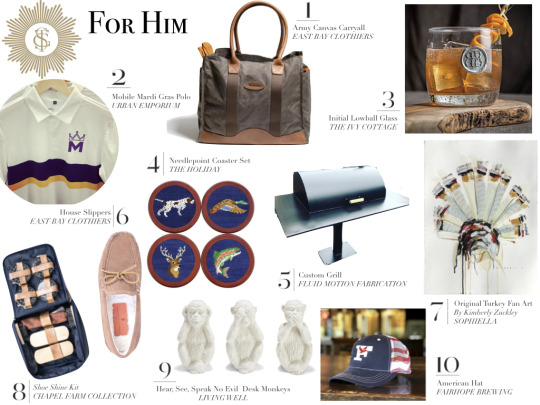
Army Canvas Carryall East Bay Clothiers
Mobile Mardi Gras Polo Urban Emporium
Initial Lowball Glasses The Ivy Cottage
Needlepoint Coaster Set The Holiday
Custom Made Grill Fluid Motion Fabrication
House Slippers East Bay Clothiers
Original Turkey Fan Art by Kimberly Zukley Sophiella Gallery
Shoe Shine Kit Chapel Farm Collection
Hear No Evil, See No Evil Speak No Evil Monkeys Living Well
American Flag Hat Fairhope Brewing Company
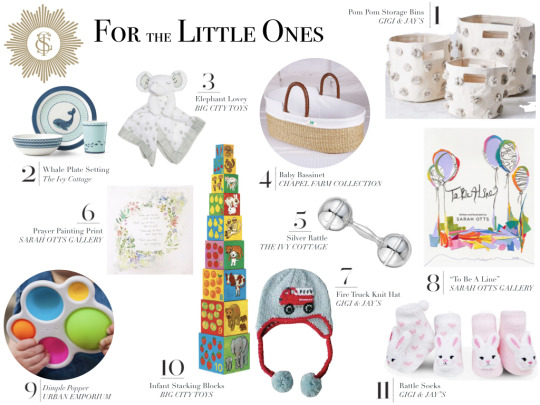
Pom Pom Storage Bins Gigi & Jay’s
Whale Place Setting The Ivy Cottage
Elephant Lovey Big City Toys
Baby Bassinet Chapel Farm Collection
Silver Rattle The Ivy Cottage
“Thank You God” Prayer Painting Print Sarah Otts Gallery
Fire Truck Knit Hat Gigi & Jay’s
“To Be a Line” by Sarah Otts Sarah Otts Gallery
Dimple Popper Big City Toys
Infant Stacking Blocks Big City Toys
Rattle Socks Gigi & Jay’s

Marbled Natives Gigi & Jay’s
Scooter Big City Toys
Puffer Jacket Gigi & Jay’s
Glow Race Track Urban Emporium
Cotton Crab Belt Gigi & Jay’s
Inflatable Jousting Set Big City Toy
Youth Zip on Neck Tie The Holiday
Color Me Cars & Road Set Chapel Farm Collection
Night Ball Big City Toys
Magnetic Workbench Big City Toys
Rain Coat The Holiday

Rainbow Weekender Gigi & Jay’s
Inflatable Jump-Along Unicorns Big City Toys
Silky Pj’s Gigi & Jay’s
Spa Towel Wrap Living Well
Rules for my Newborn Daughter Book The Holiday
Plush Vest Gigi & Jay’s
X&O Stud Earrings Harvest Jewels
Soft Dolly Chapel Farm Collection
Love Neon Light Gigi & Jay’s
Kitty Boom Box Big City Toys
Scallop Swimsuits The Holiday

Pink Quartz Earrings Harvest Jewels
Yellow Gold Assorted Lockets & Cross Pendants Elizabeth Adams
Cultured Pearl Brooch Estate Collection Chapel Farm Collection
18K Yellow & White Gold with Diamonds Cuff Bracelet Elizabeth Adams
Berkley + Peacock Feather Necklace & Pendant Combo Harvest Jewels
Flower Motif Rose Cut Diamond Bracelet Harvest Jewels
Pearl & Diamond Earrings Elizabeth Adams
Statement Earrings Debra’s
Platinum & Diamond Bands Elizabeth Adams
Gold Toggle & Links Bracelet Living Well

“Lagoon” Ceramics By Dawson Morgan Sophiella Gallery
Olive Jars Charlies Phillips Antiques & Architecturals
The Atchison Chair Atchison Home
Decorative Pillows Atchison Home
Blown Glass Colorful Water Glasses Living Well
“Sleepy Clouds over Horn Island” 20x20 by Billy Solitario Sophiella Gallery
“Wait and See” 48x36 Sarah Otts Gallery
Pine Server Charles Phillips Antiques & Architecturals
Buffet Table Lamps Feather Your Nest
Oushak 10x14 Feather Your Nest

Roll on Fragrance The Holiday
Ring Key Chain Feather Your Nest
Gift Tags Soiree Signatures
Chic Long Lighters Atchison Home
Belt with Buckle Sadie’s
Olive Oil, Locally Made Urban Emporium
Gold Link Bracelet Elizabeth Adams
Knit Cheerleader Doll Gigi & Jay’s
Bee Decorative Art Piece Feather Your Nest
Shimmer Puff The Ivy Cottage
Hometown Mobile & Fairhope Ornaments Soiree Signatures
Flask Set Chapel Farm Collection
TELL THEM SCOUT SENT YOU!
The Scout Guide Mobile Bay is a small locally owned business as well! Letting a business know that you saw them in TSG online or in the guide supports us and our mission!
0 notes
Text
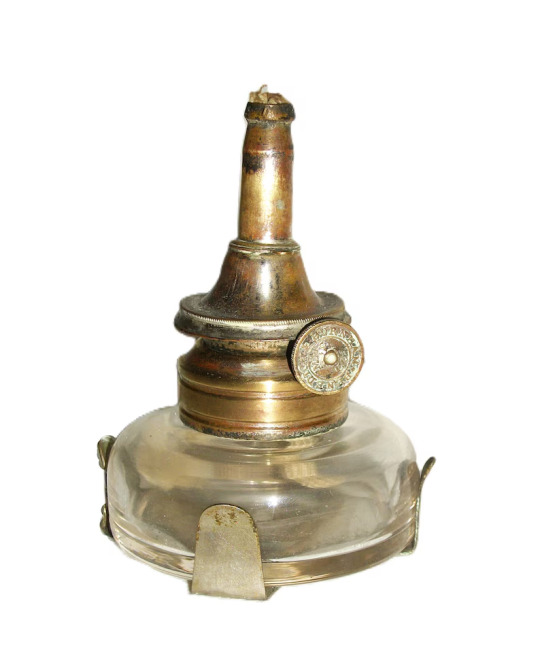
Antique Miniature Oil Lamp Jeweler Alcohol Whale Oil by Benedict & Burnham Predecessor to Modern Day Bunsen Burner Victorian era just $15 valued by Kovels at $100 in good condition!
#oil lamp#miniature oil lamp#whale oil lamp#bunsen burner#benedict & burnham#cigar lighter#antique cigar lighter#antique lamp#antique laboratory lighting#susoriginals#etsy
0 notes
Photo
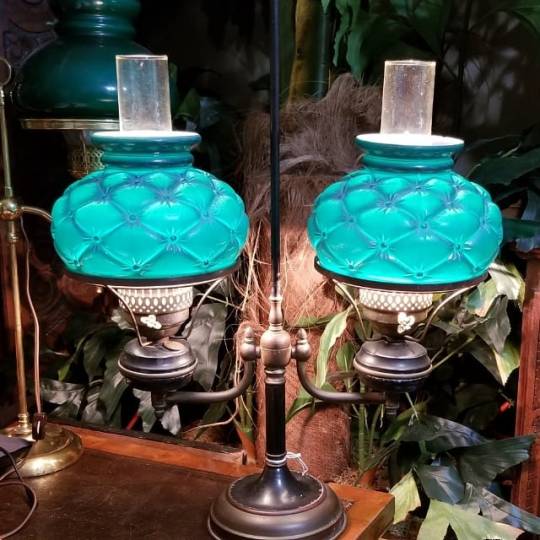
💝Old Europe Antique's Reserve Collection!💝 Beautiful oil lamp converted to an electric lamp. I love the pattern on the shades!💙 💙An oil lamp is an object used to produce light continuously for a period of time using an oil-based fuel source. The use of oil lamps began thousands of years ago and continues to this day, although not commonly anymore. Oil lamps are a form of lighting, and were used as an alternative to candles before the use of electric lights. Starting in 1780, the Argand lamp quickly replaced other oil lamps still in their basic ancient form. These in turn were replaced by the kerosene lamp in about 1850. In small towns and rural areas the latter continued in use well into the 20th century, until such areas were finally electrified and light bulbs could be used. 💙Sources of fuel for oil lamps include a wide variety of plants such as nuts (walnuts, almonds) and seeds (sesame, olive, castor, flax). Also widely used were animal fats (butter, fish oil, shark liver, whale blubber, seals). Camphine, a blend of turpentine and alcohol, was the first "burning fluid" fuel for lamps after whale oil supplies were depleted. It was replaced by kerosene after Congress enacted excise taxes on alcohol to pay for the Civil War. Most modern lamps (such as fueled lanterns) have been replaced by gas-based or petroleum-based fuels to operate when emergency non-electric light is required. Therefore, oil lamps of today are primarily used for the particular ambience they produce. https://www.instagram.com/p/B0e3cq7ni1X/?igshid=1kpuiih1ruw8f
0 notes
Text
Why Are Lighthouses A Tourist Attraction?

Prior to the advancement of plainly defined ports, seafarers were led by fires built on hilltops. Since elevating the fire would certainly improve the presence, putting the fire on a platform ended up being a method that resulted in the development of the lighthouse. Seesight tours halifax peggy’s cove tour.
In antiquity, the lighthouse functioned extra as an entrance pen to ports than as a warning signal for coral reefs and also headlands, unlike numerous contemporary lighthouses.
History
Timber fires were the earliest illuminants. As lighthouses multiplied, lights powered by coal, whale oil, kerosene as well as other gas became widespread.
One of one of the most unique lighthouse innovations, the Fresnel lens, utilized a network of prisms to multiply a percentage of light and also cast a light beam over a couple of miles.
Greek period
Lighthouse keepers might have included combustible fluids to minimize the expense on fuel and also maintain the light stable during gales, but little information exists in the literary works from the moment.
It may likewise be possible that the light was protected from the wind by glass windows, and huge mirrors may have helped in predicting the light beam as for feasible. It is likely that lighthouses would certainly have required substantial work for moving the gas and also preserving the flame.
Modern lighthouses
The modern era of lighthouses started at the turn of the 18th century, as lighthouse building flourished in lockstep with expanding levels of transatlantic business.
Advances in structural design and brand-new as well as efficient lighting tools enabled the development of larger and also extra effective lighthouses, including ones subjected to the sea. The feature of lighthouses moved towards the provision of a visible warning against delivery dangers, such as rocks or reefs.
Lightkeepers
A light caretaker's task called for singular focus. Prior to automation, the scope of his duties including replenishing the oil in the lamps, transforming as well as trimming the wicks, appearing the haze signal, cleaning the lens of soot and particles and or else keeping points tidy.
The lighthouses of the ancient world were manned by servants as well as soldiers. In Europe throughout the Center Ages, monks as well as religious women staffed the frameworks.
Usually, light caretakers operated in 2 scenarios. The initial, a "stag station," was a lighthouse manned by a head caretaker and a couple of aides that operated in shifts, investing long stretches away from their households. This was especially common in overseas lighthouses. In the 2nd situation, a keeper dealt with his family on the facilities. With a few notable exemptions, light keepers were generally guys.
The bottomline
Lighthouses are several of one of the most stunning and also remarkable historic structures we have. With the arrival of GENERAL PRACTITIONER and all the modern-day navigation innovation utilized on ships, one would assume individuals who maintain these historical buildings would certainly simply let the lights go dark, instead of proceed spending for what seems an obsolete innovation. Yet in the eyes of lots of mariners as well as also the USA Coast Guard, they're still an useful guide.
The tale of Peggy's Cove begins and finishes with a lighthouse.
Several travelers flock below yearly to see Peggy's Factor lighthouse, among one of the most famous in Canada. Yet the town surrounding the lighthouse is similarly as remarkable.
0 notes
Text
Updated Jobs
Let's make sure to drive enterprises out of business for the right reason. Antiquation comes naturally despite claims the same government that tries to ruin the internet is capable of ushering in the future.
The arrogance of thinking what's next can be controlled is reminiscent of how the all-powerful putzes stopped global warming by making you feel bad for touching the thermostat. Actually, they just changed the wording. We now must vanquish the new villain of climate change. And you say those who peddle fear can't adapt.
You never think about power until the lightning bolt doesn't appear when you plug in your phone. Burning coal is the probably why you’re reading this, along with clicking by mistake.
While you're here, maybe take 40 seconds to ponder how nobody wants filth spewing from tailpipes any more than we want a world without them. Emissions are the byproduct of having a society. That's unless we're burning stuff for the fun of polluting to sadistically blacken the lungs of proles.
Besides, there's not that much soot getting churned anymore. Nostalgia can be overrated depending on the case. The air is getting cleaner because people want to get more out of spending less.
Power plant operators have an incentive to be efficient. Check it out: heartless capitalism saved the planet. Clean air through free markets isn't merely amusing because it makes liberals fume that everything they hate works.
More efficient extraction will put coal miners out of work, which is tough in the short term. Nobody likes being jobless except Millennials. Yet trying to ensure employees in obsolete industries don't have to learn computers would mean houses outfitted with whale oil lamps, which leads to fatalities amongst the animal in question.
We still don't encounter whalers begging for change at the highway onramp, as they went extinct while whales didn't. And there are fewer bank tellers thanks to ATMs. Meanwhile, virtually nobody attends the horse buggy whip union hall cotillion. This seems like a great chance to learn technology. Moving to new fields may not be a choice. Or, sit alone in the abandoned opera hat factory break room.
These fancy touchscreens free up people from grunt work. No job is demeaning if it provides value and is done with dignity. Also, be glad humans don't have to do tasks our machine servants can learn in a fraction of a second.
Don't get pushy about new careers, like those progressive reactionaries who want to put certain politically unpopular workers on unemployment out of a vague sense their work providing energy destroys Earth. Point out the warming stopped around the time Bill Clinton was getting hot with a lady who was not his wife to provoke heated anger. You can't expect calmness from anyone claiming human progress will end human life.
Everyone should want to see the extraction industry go as extinct as the dinosaurs whose corpse remnants they remove. Cheering against fossil fuel work is not done out of contempt for rural Red State-dwellers or just the sort of cruelty supposedly exhibited by stock barons.
There are two ways for jobs to disappear from contemporary life. Unfettered progress will end coal mining just like preposterous regulations will. The difference is we’ll get power out of whatever replaces burning as the main way the light switch functions properly.
Why do self-appointed guardians of progress want poor people to pay more? The question's not just for nettlesome regulations from twits who know just what businesses need despite never running any.
Robots make cheeseburgers more efficiently and fill Amazon packages cheaper. Sure, you lose the human contact on your dinner and stuff. But the loss of employment is accompanied by lower prices for everyone else as we head into tomorrow. Replacing repetitive work with exciting careers getting to talk to robots might not sound appealing, but advancement refuses to wait.
The side with all the compassion expects those without college diplomas to remain in dying industries, which is the sort of malevolent prank I've been told only corporate tyrants sadistically inflict. Cruelly keeping us relying on hands touching products will prevent us from touching cash.
We should want those looking toward future employment to learn trades involving computer chips. Preserving hoary industries would turn everywhere into Colonial Williamsburg, and anyone who's used an iPhone isn't going to have enough patience to make candles as a career.
Machines are getting all the good jobs and hot chicks. We're all doomed to poverty anyway with each purchase of this newfangled tractor putting 15 farmhands out of work. How will the economy survive the death of tilling by hand? Nobody respects a craftsman's work anymore.
0 notes
Text
Early Antique Hand Forged Iron 4 Wick Burning Whale Oil Fat Betty Cruise Lamp
http://dlvr.it/R0ndMV
0 notes
Text
Commentary: We can tackle climate change without stunting economic growth
LONDON: What are the limits to economic growth — and have we already recklessly exceeded them?
Such questions were raised (again) this week by (another) alarming report about climate change. Many of my environmentalist friends are convinced that economic growth itself is the fundamental problem.
Advertisement
It was a timely moment, then, to give a Nobel Prize to two economists who’ve tackled that question head on. William Nordhaus and Paul Romer have tried to find ways to understand the invisible and sometimes ineffable causes and consequences of growth.
The modern world produces two things in abundance: Carbon dioxide and ideas. Both swirl around, defying our attempts at control. We’d like more ideas but already have more than enough carbon dioxide.
The future of humankind may depend on a strange race: Can we keep living standards rising yet restrain consumption of resources and production of pollutants?
READ: Rising temperatures will make Southeast Asian economies sweat, a commentary
Advertisement
Advertisement
Economics being economics, Mr Nordhaus and Mr Romer received their prizes for technical achievements in economic modelling.
Mr Nordhaus analysed the interaction between climate change and the economy; Mr Romer developed an elegant way to model innovation as an intrinsic part of the growth process, rather than falling from heaven.
These are impressive intellectual accomplishments, but my fascination with both men concerns some of their more informal work.
In one of the economics papers I truly love, Mr Nordhaus tracked the price of illumination over the millennia, from the days when people could create light only with a campfire, through the time when they would use beef tallow — or clean, bright-burning spermaceti oil from whales — to the invention and improvement of incandescent bulbs.
Mr Nordhaus chopped and burnt wood, and tested antique lamps with a Minolta light meter. He concluded that in Babylonian times, a day’s hard work would produce enough to light a room for 10 minutes.
Light bulbs in a cafe in Paris (Photo: Unsplash/Thomas Vimare)
By the end of the 20th century, the return on a day’s labour had improved from 10 minutes of light to 10 years. That is the kind of progress that gives one hope for us all.
The environmental toll paid for that light has also plummeted, which is good news for the whales and good news for us. Perhaps it really might be possible to enjoy the comforts of modernity without destroying the planet.
TAKING THINGS FOR GRANTED
Since the early 1960s, UK carbon dioxide emissions per person have almost halved, yet the country’s economic output per person has tripled in real terms. This is partly due to moving production abroad, but most of it is from producing more value with fewer physical resources and a lot less coal.
That is where Mr Romer comes in. Like Mr Nordhaus, he is impressed by our capacity to make (and then take for granted) innovative progress and argues that there is room for much more.
Consider the compact, self-repairing, mobile, renewable-resource-powered chemical reactor that we call a “cow”.
Courtesy of evolution, it is vastly more impressive than human-designed facilities. This elegance, suggests Mr Romer, tells us that there is plenty of room for us to do things better.
That is also true for the institutions that produce new ideas. While Mr Romer’s prize-winning work makes particular assumptions about who pays for new ideas and who benefits when they are produced, his informal writing and policy work highlights that these things cannot be taken for granted.
He wrote not long ago that “only a failure of imagination” allows us to conclude that in today’s universities, intellectual property rules and scientific norms we have perfected the way we develop and diffuse new ideas.
SOLVING PROBLEMS THROUGH INNOVATION
We should constantly be searching for better ways to do things — as Mr Romer himself did with a successful foray into digital learning, ahead of the trend, and later with his bold and controversial push for “charter cities”, in which a country with weak institutions might outsource the governance of a greenfield city site to Canada or Norway.
In particular, we should do more to encourage innovation that attacks the climate change problem.
It is conceivable that we will manage to solve the problem anyway, courtesy of dramatic progress in the cost of solar power and battery storage.
An employee walks between rows of solar panels at a solar power plant on the outskirts of Dunhuang, Gansu province, China, June 10, 2011. (Photo: REUTERS/Stringer/File Photo)
READ: It’s cheap innovations that will change the world, a commentary
There is still every reason to believe that material progress is consistent with the survival of the ecosystem. Human ingenuity is astonishing. It would be nice if policymakers tried harder to direct it toward low-carbon energy.
If policymakers matched climate change talk with action, my guess — just a guess — is that we would find that the transition to a vastly cleaner economy is smooth.
I realise that my friends mean well when they demand that economic growth must stop, and soon. But I am pretty sure that they are wrong — and that their pessimism merely convinces others to do nothing.
© 2018 The Financial Times Ltd. All rights reserved. Please do not copy and paste FT articles and redistribute by email or post to the web.
Source link
The post Commentary: We can tackle climate change without stunting economic growth appeared first on Today News Stories.
from WordPress https://ift.tt/2OU8GcW
via IFTTT
0 notes
Text
Patina Pangolin
Metal Claws
Limestone Stalactite
Inscribed Pangolin
Pangolin
Historical Text
Ashen Bicorn Whale
Antique Oil Lamp
Barnacle-Encrusted Relic
Vermillion Epiptite
Dragonfly
Granite Chunk
Longwing Epiptite
Giant Darner
Shale Sliver
Quetzeel
Cobra Snakehead
Amphibious Wing
0 notes
Photo

Late 1800 since bronze cast whale oil lamp with double wicks . . These Are Sold As Seen In The Photographs . Dimensions 9 inches tall & 9 inches wide . . . Now on Sale.. Kindly DM for price and details.. Shipping all over India & Worldwide . . . . For Antique collectibles follow us @ www.facebook.com/Indianantiquestore/ . instagram.com/indian_antique_store . in.pinterest.com/prasiddhart/ . www.olditems.in/ . . . #indianantiquestore #antiqueshop#collectables#brass #copper #bronze#vintage#antiques #classic #historic#antiquestore #indiandecor#interiordecoration #homedecor#antiquedecor #decor #curiocollection#vintageshop #handicraft #handmade#kitchenvessels #fleamarket #colonial#oldworld #kitchenprops #bronze #victorian #oillamp #lamp #whaleoillamp (at Bangalore, India)
#copper#indianantiquestore#fleamarket#homedecor#collectables#decor#antiques#vintage#whaleoillamp#indiandecor#kitchenprops#handmade#kitchenvessels#victorian#colonial#oldworld#historic#oillamp#lamp#bronze#antiqueshop#vintageshop#classic#antiquestore#interiordecoration#brass#antiquedecor#curiocollection#handicraft
0 notes